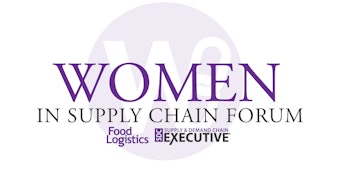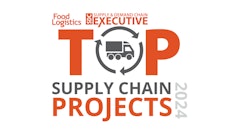The current fad is to be "green." I have spoken with several organizations throughout the year that specifically want to have a "green" warehouse. However, I believe the current economic climate has proven that there is a different type of "green" with which your company needs to be concerned.
Most organizations know their warehouse is inefficient, and all executives know their warehouse will ultimately win or lose business. But in the rush to keep up with the current fads, many executives have overlooked how vital their warehouse operations are to the organization's overall success. Your industry, which is probably struggling like every other industry in this economy, will force you to make some tough decisions. What will you do? Look to convert your warehouse to a "green" facility, or will you focus on surviving?
I am not an economist or an environmentalist; I am a realist. I know that now is the time for you to be very concerned about the financial health of your organization. The U.S. government is bailing out (rescuing) several financial institutions, while Washington Mutual and Wachovia are no more. No one knows what kind of ramifications this "bail out" will have on the world economy. But the question that must be asked is: What impact will this have on your customers, your vendors, your organization and, ultimately, your employees? We have known for some time now the cost of capital was on the rise. We have known for some time now that our inventory levels were on the rise. And we have known for some time now that if we are to survive it will be as a direct result of our warehouse operations and not because of our sales staff.
In this or any economy your customers want to know four things when they do business with you: (1) Is your inventory is accurate, (2) Will you deliver what they ordered, (3) Will that delivery occur when they need it, and (4) When their invoice arrives will the first three things take place at a competitive price?
Let's break down each one of these points to help you gain a better understanding of the importance of your warehouse.
- Is your inventory accurate? This point should speak for itself, but more often than not its value is grossly overlooked. In what business would your organization be without inventory? If your customer service personnel spend time verifying that the quantities on the screen match the quantities in the bin, you are headed for a disaster. Six to 20 percent of your capital is tied up in inventory. Slow moving inventory, dead inventory and lost inventory are all eroding your profits, and your organization cannot survive on an inconsistent flow of inventory. Your inventory is the lifeblood that is keeping your organization alive. And when that blood does not flow properly your organization will ultimately die. It is really that simple.
- Will you deliver what they ordered? How many returns does your warehouse process? According to CSCMP, 20 percent of all orders shipped are shipped inaccurately. Only 30 percent of all warehouses operate efficiently. Will you deliver what they ordered is a serious question that many executives refuse to answer. As the numbers of orders you process begin to decrease, what happens next? First you will begin to lay off warehouse personnel. Then you will lower your prices to get more business. As your competitors begin to do the same thing your customers will then ask, "Who will deliver what I ordered?" If you currently have returns sitting on the warehouse floor waiting to be processed you are not delivering what the customer ordered.
- Will that delivery occur when the customer needs it? The rising price of oil has forced transportation companies to implement a "fuel surcharge." That means selecting the right carrier is crucial. I hate to say it, but I know the selection process is often based on who gives the most tickets to sporting events or who gives the deepest discount. But you must remember: The transportation company you select is a direct reflection of your organization. When an order is not delivered on time, who does your customer call? You, or the transportation company? When your sales personnel promise a delivery to your customer's jobsite by a certain time without checking with the warehouse, who is blamed? The sales person, the warehouse or the company? You must ensure your transportation providers are on time and responsive. Remember that when your product arrives at your customer's receiving dock, jobsite or office, that is a sales call. The customer's perception of your organization will be based on the package that arrived and the carrier that delivered it. What do you think your customers perceive?
- When their invoice arrives will it be at a competitive price? If your inventory is inaccurate, you have a backlog of returns or you have not passed the "fuel surcharge" on to your customers, what effect do these things have on your current pricing model? Your current pricing model is most likely based on what your customers are willing pay for your product. However, I disagree with that model because your customers will pay a higher price if you can deliver what they want when they need it. And you have to improve the efficiency of your warehouse operations to do just that. When your organization is competing for fewer orders, who will survive? The company that continues to discount its product, or the one that has removed the inefficiencies from its warehouse operations and can accurately price its product? I know you are saying to yourself right now, "My customers do not care about my inefficiencies." But I beg to differ. Stand at your will-call counter, attend sales calls, have a customer-only meeting and listen to what your customers have to say about your inefficiencies. It is not good.
Now is the time to take an interest in the way your warehouse processes transactions. Many of you reading this article right now will not be around this time next year. Woseley has seen its profits drop, like many. However, they have reduced their headcount by 7,700 and closed more than 270 locations. Doesn't that mean there was a lot of waste in the system? Waste that should have been eliminated a long time ago? But we wait until the economy drops, so it seems justifiable to make those kinds of decisions.
Now is the time to take an interest in your warehouse in general. And not just whether or not you can make your warehouse "green." But whether or not your warehouse will continue to erode the "green" your organization is required to pay its vendors and its employees. Just remember: The color of your warehouse will not matter when you are closing your doors.
About the Author: Rene' Jones is widely known in the supply chain and logistics industry as the founder of Total Logistics Solutions, Inc. (www.logisticsociety.com). Jones has been published, referenced and quoted in industry magazines throughout the United States, Central America, Canada, Australia and Europe. He is the author several books including the acclaimed, This Place Sucks (What your warehouse employees think about your company and how to change their perceptions!). Jones has 18+ years of experience in consulting, training, warehousing and logistics and has used his industry knowledge to assist small and large multinational organizations alike, making them more efficient and more profitable.
What does "Going Green" really mean? Join Supply and Demand Chain Executive, along with Cisco Systems and IHS, as they discuss a recently concluded industry benchmark study on green priorities. Don't miss the opportunity to define green and learn how other organizations will approach 2009 and beyond to demonstrate responsible business behavior or gain competitive advantage. Register here.
























